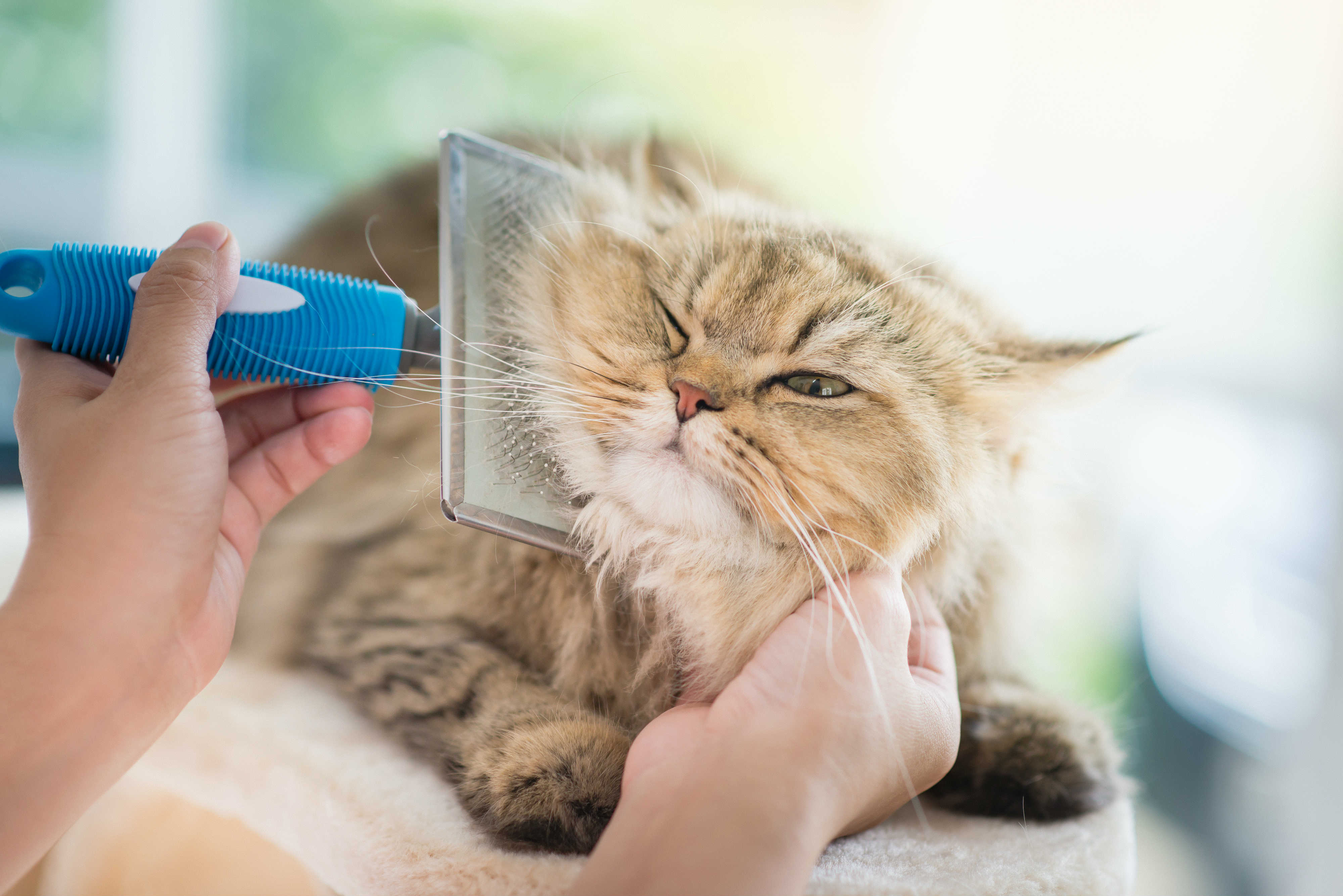The sound of your sweet kitty hacking and dry-heaving to eliminate a hairball is definitely one of the least pleasurable experiences of owning a cat. All cats get hairballs once in a while and generally they are nothing to worry about, except for the stains they leave on the carpet!
However, every so often they can lead to issues such as intestinal blockages, so it's important to know how to manage them.
What are hairballs?
When a cat grooms herself the small backwards facing hooks covering the tongue gently pull out dead or loose hair. This hair is then swallowed and usually passes through the digestive system and out into the litter tray with no problems.
However sometimes, the swallowed fur becomes matted in the stomach and cannot pass through, so the cat is forced to vomit out the hair in the form of a small sausage shaped hairball.
Long-haired cats are more prone to developing hairball problems, and older cats who have developed stricter grooming routines over time can have issues too, but they are natural in all cats.
Whilst the noise of your kitty coughing up a hairball can be distressing, it is a completely normal experience for a cat, and you'll probably see her casually walking away from the hairball as if nothing happened!
In fact, the occasional hairball is a sign that your cat has a healthy grooming routine. However, if the hairballs are very frequent, or your cat is retching repeatedly without eliminating a hairball, it could be time for a trip to the vet.
Are hairballs dangerous?
Hairballs themselves are completely natural for both long- and short-haired cats, but problems can arise when the hairballs are not coughed up. If a matted hairball moves into the intestines, it can, on rare occasions, cause a blockage which may require surgical removal.
This is more common in older cats, as their slower digestive systems are more susceptible to blockages and constipation. Similarly, cats who suffer from conditions which make defecating uncomfortable (such as arthritis) are more likely to struggle to pass hairballs.
Hairballs can also be indicators of other health problems. For example, a common cause of hairballs is excessive grooming which can be due to the cat suffering from stress or a skin condition.
Similarly, if your cat is continually retching and dry-heaving, this could indicate other digestive problems.
What are the symptoms of a hairball blockage in cats?
Sometimes a cat is unable to remove a matted hairball before it passes into the digestive tract. If this happens, the hairball can cause a blockage in the intestines which may require surgery. Contact your vet as soon as possible if you notice any of the below symptoms:
- Repeated gagging or dry heaving without producing a hairball
- Unexplained diarrhoea or constipation
- Lethargy and depression
- Loss of appetite
If your vet suspects a hairball blockage, they will first x-ray your cat to identify where the blockage is. Based on what they can see in the x-ray, they are likely to either prescribe laxative medication to break down the hairball and move it through the intestines, or arrange for the hairball to be removed surgically.
How do you help to prevent hairballs in your cat?
If your cat is susceptible to hairballs there are a number of ways you can help to prevent them and reduce the risk of an intestinal blockage.
Regular grooming
Set aside some time to brush your cat's fur; once a week for short-haired breeds, or once a day for long-haired breeds. Most cats will enjoy spending this quality time with you, but if your cat doesn't like to be brushed you can opt for a professional groom every few weeks instead.

Anti-hairball food or supplements
Your vet will be able to advise you on the best anti-hairball food or additional supplements for your cat if she is suffering from recurrent hairballs. These are high in fibre which not only improves the condition of the fur (meaning less falls out when your cat grooms), but also helps move hair through the digestive system safely.
Keep an eye out for excessive grooming
Cats often turn to excessive grooming as a coping mechanism at times of high stress such as a house move, or even a loud party at home. Cats living with other animals can also become stressed. This can be a particular issue if you have 2 female cats living together as they can compete to ‘own’ the home. It's a good idea to monitor your cat at times when you anticipate extra stress, and talk to your vet about pheromone treatments that might help.
It’s a good idea to insure your cat when they are young so that you have extra financial back-up should you cat need vet treatment for hairballs. The costs associated with surgery can really mount up so take a look at our compare cat insurance page to learn more about your insurance options.
